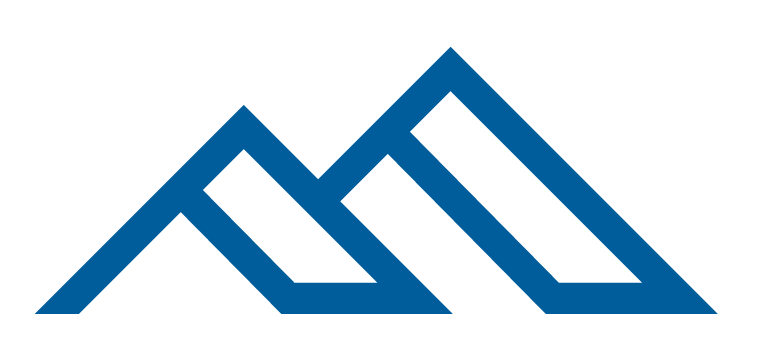I Wished I Had Known: Kate Kaiser

Kate Kaiser is a Senior Associate in KPMG’s Financial Due Diligence (FDD) practice, where she specializes in middle-market buy-side and sell-side transactions for private equity clients. Since joining KPMG in October 2021, after graduating from the University of Texas at Austin, she has developed a strong ability to analyze financial performance, identify key deal risks, and distill complex data into actionable insights. Beyond client work, Kate is actively involved in mentoring junior team members, leading skill-specific trainings, and contributing to firm recruiting efforts. She is also a member of Private Equity Primer’s Training Advisory Council, where she helps shape training content for up-and-coming M&A professionals. Colleagues describe her as detail-oriented, thoughtful, and highly dedicated to delivering quality work.
We sat down with Kate to learn from her experience in Financial Due Diligence.
Deal Guide: What was one knowledge area or skill you had trouble grasping when you first started in FDD? How did you improve?
Kate: One of the biggest challenges when starting in FDD was shifting from simply analyzing numbers to understanding what those numbers actually meant in the context of a deal. Early on, I focused on making sure every adjustment was well-supported and every calculation was precise. But I didn’t always step back to assess which findings were truly material to an investor. I often got caught in the details, trying to analyze everything equally rather than distinguishing between a meaningful risk and just another number on a page.
Over time, I improved by actively engaging in discussions with deal teams, asking “so what?” about my findings, and learning from senior team members who could distill complex analysis into sharp commercial takeaways. I also started looking at past deal memos and asking myself, If I were the investor, what would I care about most? These shifts helped me focus on material issues rather than getting lost in analysis for its own sake.
Even now, I’m continuing to refine my ability to tell a deal story. Strong technical skills are essential in FDD, but the next step is communicating findings in a way that is clear, concise, and directly relevant to investment decisions. I’m working on this by studying how experienced team members frame key takeaways, reviewing past reports, and challenging myself to distill my own findings into succinct, commercially relevant insights before presenting them internally.
Deal Guide: People often speak about the role of mentors in growing in their career. We often think of active mentorship where two people have agreed to engage in this sort of coaching relationship. However, many times, mentorship is ad hoc or something you observe others doing. What are some examples of ad hoc, observed, or informal mentorship that have helped you in your career?
Kate: Mentorship has played a huge role in my growth—not just in my career, but in many areas of my life. While formal mentorship structures are valuable, some of the most impactful lessons I’ve learned have come from informal or observed mentorship. These moments happen organically, often when someone takes the time to share insights, offer perspective, or simply lead by example.
At a Big Four firm, structured mentorship is common, which provides great opportunities for career development. But some of the most meaningful mentorship I’ve received has been more informal. One example is a Managing Director who, outside of the structured mentorship group we were both part of, casually offered to meet one-on-one. At the time, I was going through a particularly challenging season in my career, and those conversations became a safe space to ask career-related questions, confront imposter syndrome, and get advice from someone with deep industry experience—but who wasn’t in my direct chain of command.
Another example is a manager I work closely with. From the start, she has taken extra time to walk through concepts, share resources that have helped her, and provide practical tips on how to work more efficiently and effectively. Her mentorship extends beyond technical deal work, delving into how to communicate, prioritize, and grow as a professional. Beyond my own experience, I’ve also seen how she mentors others—taking time to explain things in a way that builds confidence, guiding junior team members through complex analyses, and always being willing to share what she’s learned. Watching how she approaches mentorship has shaped how I think about supporting and developing others.
These kinds of informal mentorship moments—whether intentional or simply observed—have shaped the way I think, work, and approach my career. They’ve reinforced the value of taking the time to help others, and I hope to pay that forward as I continue to grow in my own career.
Deal Guide: By now management calls are old hat for you. How do you prepare for them?
Kate: Effective management calls require both preparation and adaptability. To start, my team and I develop key questions, which we typically send to Management in advance. I also ensure our questions align with the overall deal objectives, so that we’re focused on the areas of highest risk or opportunity for our client. I highlight key tabs we’ll need to walk through and coordinate with my team on who will lead which sections. I also tend to mark which questions may be lower priority, so that in the event of a time crunch the team is already aligned on the items that may be more appropriate to skip over. When reviewing key questions ahead of the call, I take time to anticipate possible responses, which helps me consider thoughtful follow-up questions.
Immediately in advance of the call, I ensure I’ve pulled up all relevant materials so I can quickly reference necessary data points. Practically, I keep OneNote open for quick notes, one-off items, and a central follow-ups list. I decide in advance what my marker for tracking follow-up items will be within our Word agenda and Excel workbook, as applicable. All files are set up in advance with designated areas to record Management’s responses and other relevant dialogue.
Successful management calls are a collective effort. I’ve found it to be important that everyone on the team is aligned on their specific objectives and ready to add value. I’ve found the approach I’ve described helps ensure an efficient and maximally productive conversation for both our team and Management.
Deal Guide: What did you wish you knew earlier in your career?
Kate: My whole life, I’ve been extremely detail-oriented and a bit of a perfectionist. If left to my own devices, I’d default to ensuring every number and analysis was as thorough as possible, regardless of the time spent to achieve that. While I’ve seen moments in deal work that this attention to detail serves me (and our client) well, I’ve also come to see more and more how it can be a hindrance. It turns out perfection isn’t always the most efficient path—especially in a deal-driven environment where speed and impact matter. One of the biggest takeaways in my career has been learning how to prioritize my efforts based on what truly moves the needle for our client. Not every refinement or extra analysis is worth the additional time and cost. Understanding the balance between thoroughness and efficiency has helped me become a more effective advisor, focusing on the highest-value insights rather than chasing diminishing returns on perfection.
